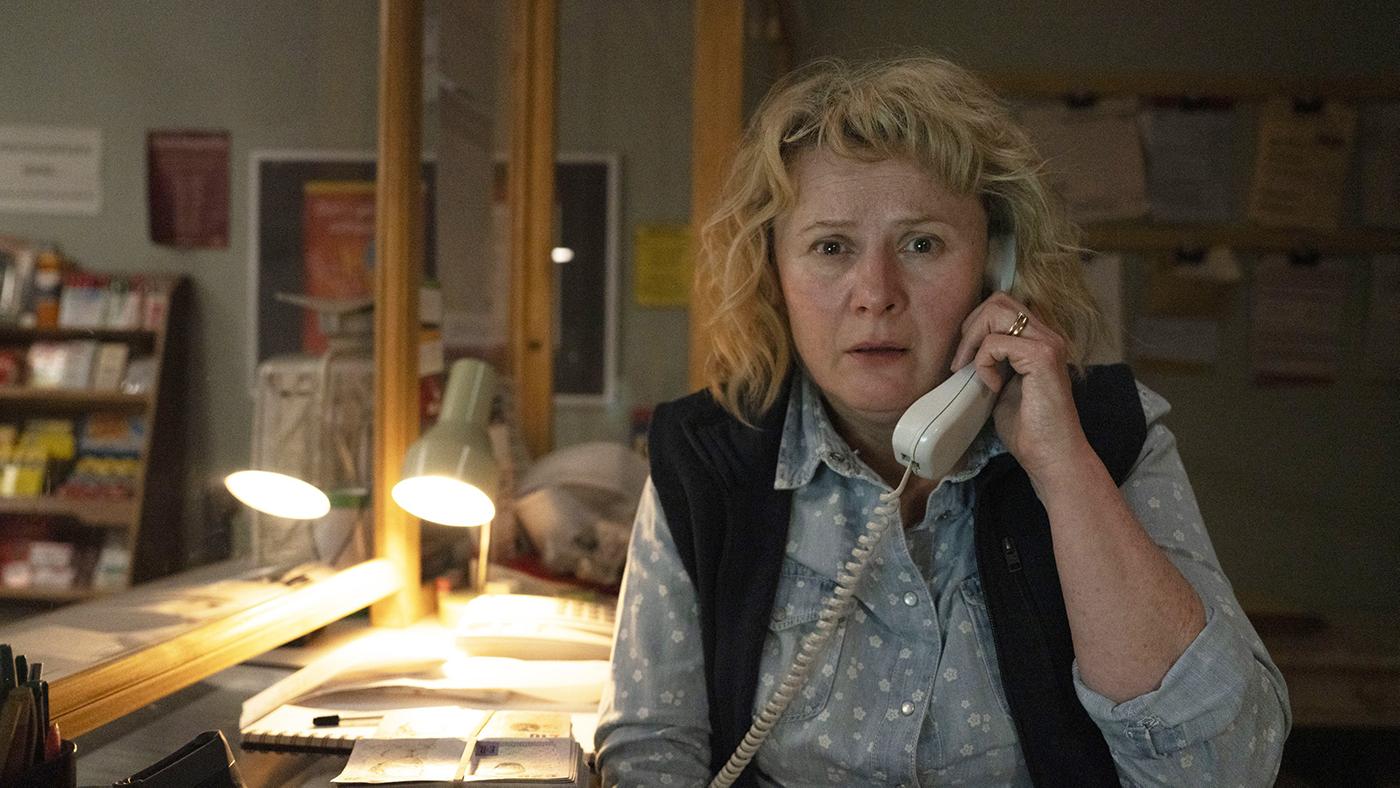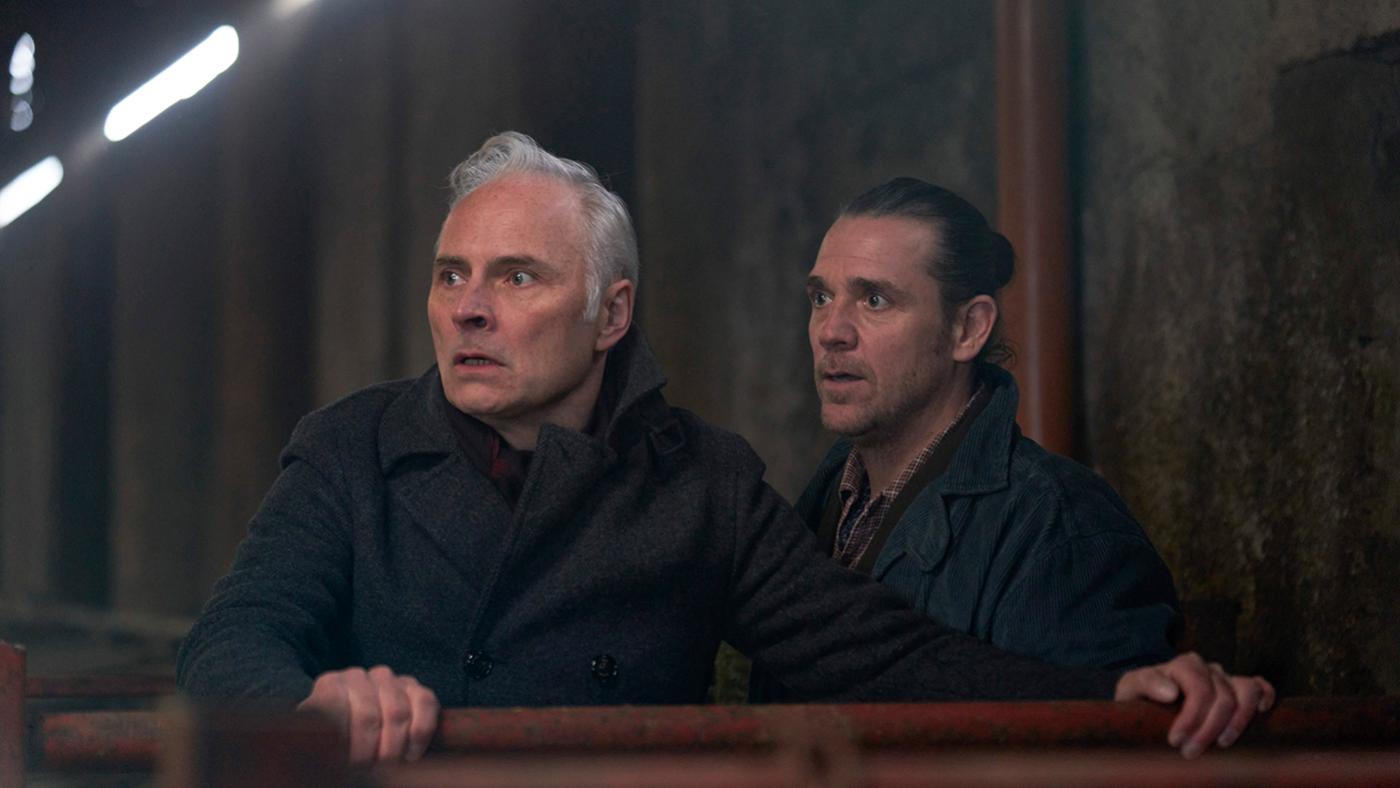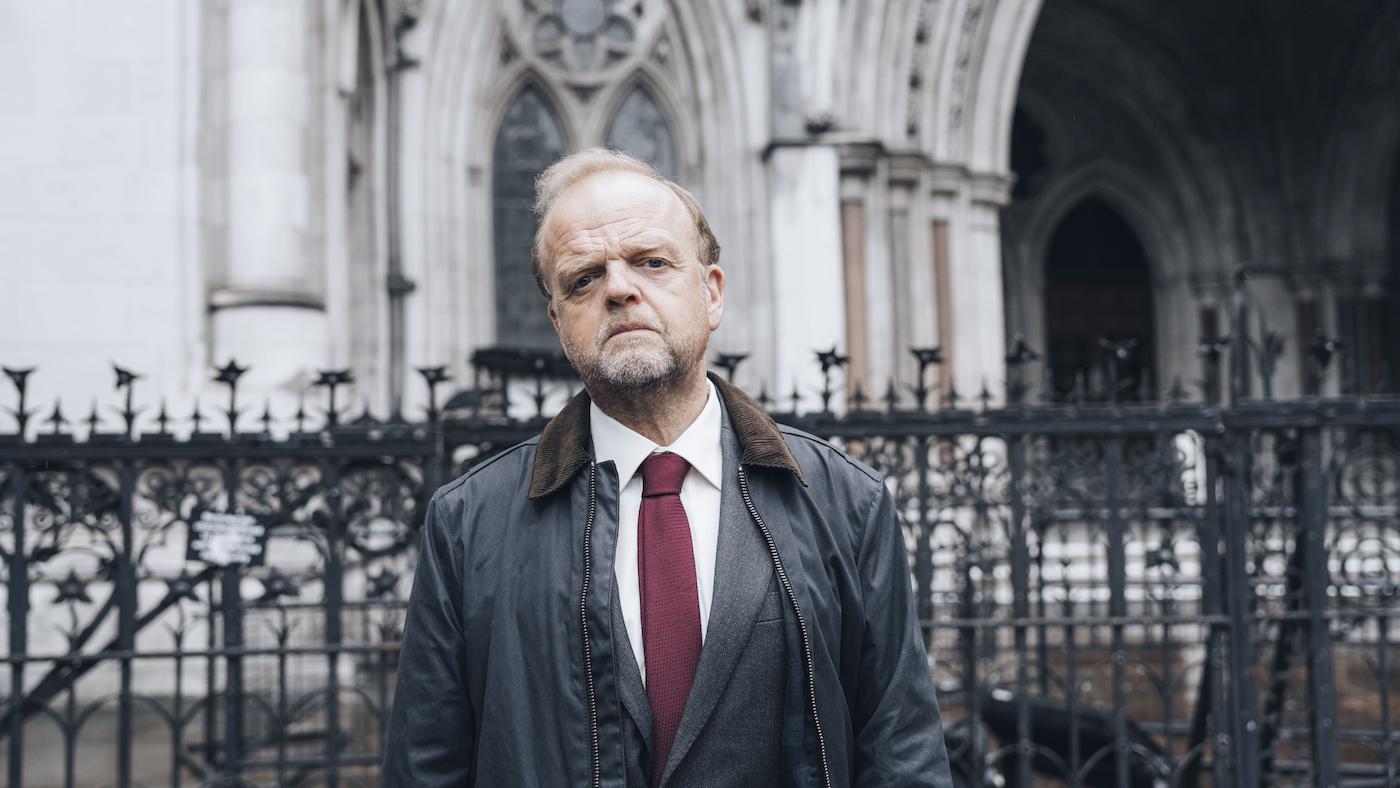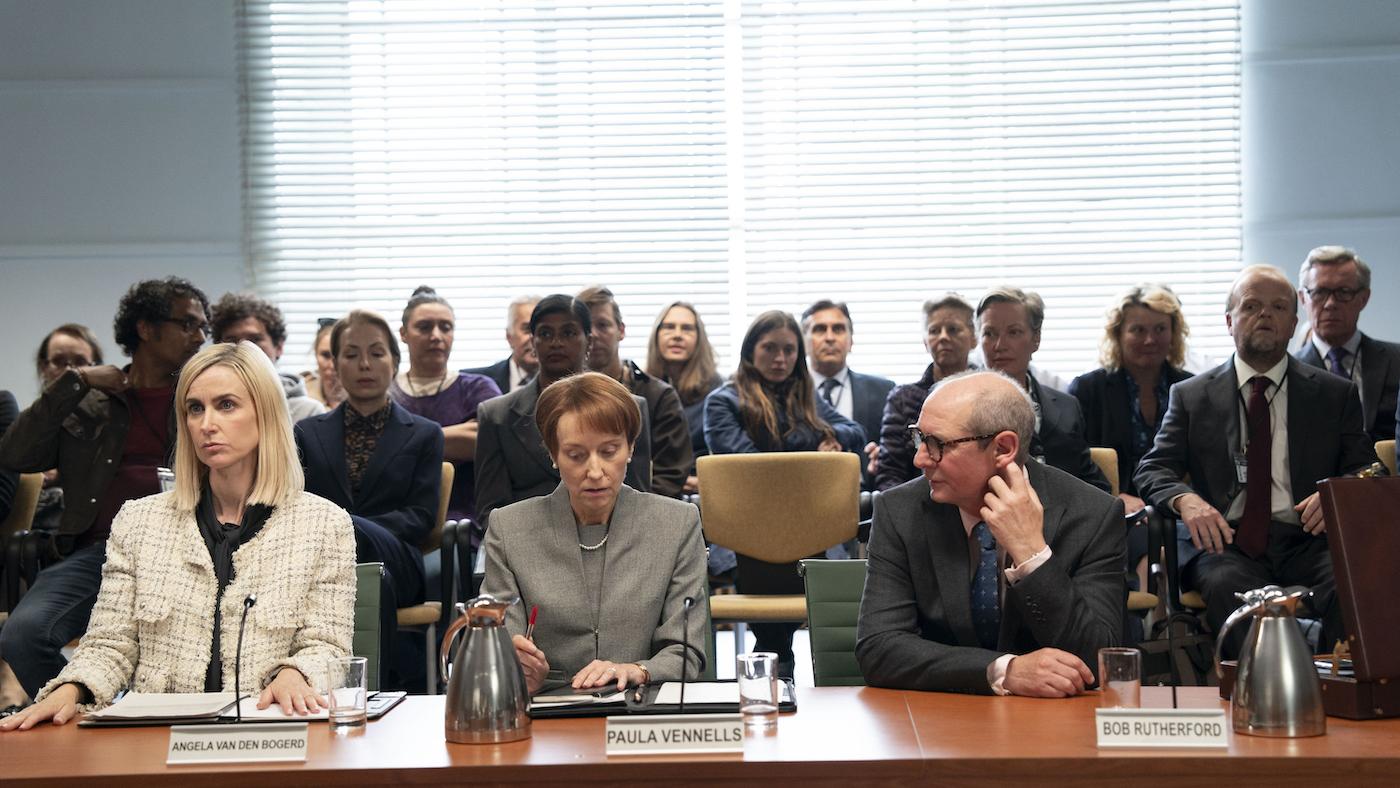'Mr Bates vs the Post Office' Recap: Episode 1
Daniel Hautzinger
April 7, 2024

Mr Bates vs the Post Office airs on WTTW Sundays at 8:00 pm and is available to stream. Recap the following episode.
Keep up with your favorite dramas and mysteries by signing up for our newsletter, Dramalogue.
“Daylight robbery – that’s the post office for you.” Alan Bates says that jokingly about the prices at the post office he manages in Llandudno in Wales, but it could also refer to the way he’s being treated by higher-ups. According to Horizon, a computer system used by the post office, money has gone missing from his office. His contract requires him to personally pay to make up the shortfall. But he believes Horizon is at fault, insisting that no money is missing – and refusing to pay or sign off on his accounting reports.
That leads to men in dark cars and dark suits storming his post office and demanding to see records, but Alan refuses. They fetch the police, who listen to Alan and leave – no crime has been committed. Nevertheless, Alan’s post office is shut down. He and his wife Suzanne decide to buy a house in the mountains and start over – but Alan also keeps records from the office and stows them in his attic.
Alan wrote letters to the government and media about his suspicions that something was off with Horizon, but never heard back. He decides to take a computer course both because it is a good career path but also because it can help him set up a website and possibly understand Horizon better. Suzanne, meanwhile, has taken a job cleaning offices – she used to work in the post office with Alan.
The post office and Horizon’s help staff always insisted that Alan was the only person reporting problems with the system. Jo Hamilton, who runs a post office in the same building as a café for which she bakes in South Warnborough, hears the same thing when she calls Horizon for help balancing the accounts. She keeps getting a discrepancy – and it doubles when she follows the instructions of the woman on the phone, who assures her that things will work themselves out eventually but that Jo must pay the shortfall in the meantime.
That forces Jo to re-mortgage the house she shares with her husband and mother – her savings are already gone and credit cards maxed out. So when a discrepancy appears again, she manually reduces it to a few pounds and pays that before signing off on the report. “God forgive me,” she says. She’s never even had a parking ticket.
Lee Castleton lives above his post office in Bridlington with his wife and two children. He asks for an audit when he fails to get help in resolving the shortfalls that keep appearing in Horizon. The auditors tell him that £26,000 are missing, and that he has to pay it. They suspend him and lock him out of his post office. Word gets around, and a boy spits at his daughter, saying that her dad stole money.
Lee digs through records and finds a transaction appearing simultaneously on two Horizon terminals – there must be a bug. He starts calling post offices throughout the country to see if anyone else has had issues. The post office sues him for the £26,000, and he is summoned to court in London. He will represent himself, because he can’t afford a lawyer, but has trust in the British justice system.
That system has sent one subpostmaster to jail. Noel Thomas from Anglesey has an upstanding reputation but pleaded guilty to false accounting of up to £48,000. Watching the news on TV, Alan and Suzanne are struck by how scared he looks, and the huge sum of money.
Jo also submits to an audit on the advice of her mother, because Horizon keeps turning up discrepancies that she worries over late into the night, trying to make them go away. The auditors find £36,000 missing, and suspend her. She goes to a customer who is a lawyer, then answers “no comment” to all questions in an interview with the post office investigators. The post office can run its own criminal investigation – it never has to go to an independent outside agency like the police.
The post office offers to drop Jo’s theft charge if she pleads guilty to false accounting. She is guilty of that, but only because she couldn’t make the system work. The deal would also force her to pay the “missing” money and not blame Horizon, but she might not go to prison.
Scores of her neighbors turn out at her court date as character witnesses. A reverend says Jo is more a center of the community even than herself. As a result of that testimony, the judge sentences Jo to a community order and weekly probation meetings instead of prison.
Lee has less support at his court date, although he has reached one other subpostmaster who related problems with Horizon. A woman at a post office called him back on a private phone to send him to Alan Brown – she was too afraid to talk. Brown also won’t go on the record – he can’t afford to lose his job and the money he invested in opening the post office – but admits there has been a bug with Horizon. He forwards Alan an email with some evidence.
But it’s not enough to save Lee in court. A system specialist from Horizon testifies that they’re aware of the bug at Brown’s post office but that there is no evidence of it at Lee’s. The judge orders Lee to pay the shortfalls from his office, as well as the post office’s legal fees, which are over £300,000.
Lee has to take work as an electrician, living out of his car as he travels for jobs. Even though he lives above the post office, he can’t sell it, since he was suspended. He reaches out to Computer Weekly, hoping for help with Horizon.
Alan Bates had reached out to the publication years ago, but now that they have heard from Lee and seen Jo’s court case in the news, they follow up. The journalist Rebecca Thomson tells Alan she has six subpostmasters, including Lee, Jo, and Noel, ready to go public with accusations against Horizon. Alan explains that he has escaped prosecution because he refused to ever sign his accounting reports, and that he was warned by lawyers that if he ended up in a legal battle with the post office they would just keep appealing until he ran out of money – even though they never tried to actually prosecute him.
Rebecca publishes the story, including Alan in it. It leads Noel, who has served his nine months in jail, to Jo at her café – she still runs that, with the post office section simply closed up. Noel explains to Jo that he started working for the post office at age 17 and spent 42 years there. His thanks was turning 60 in prison. Jo and Noel both admire Alan for standing up to the post office by refusing to sign his reports – Jo never even considered that as an option.
Jo calls Alan, who asks her why she pled guilty. She explains that she didn’t want to go to prison, and didn’t know how to prove that Horizon was to blame.
Alan decides to devote himself to doing so, and begins digging through the records he stowed in his attic. He decides to send letters to subpostmasters across the country inviting them to a meeting about Horizon. He wants a central location, and decides from a map on the 808-person town of Fenny Compton.
He, Suzanne, and Jo are amazed at the turnout at the meeting. He stands up and makes a speech. The post office told us all we were the only ones having these problems, he says. But we’re not alone anymore.







